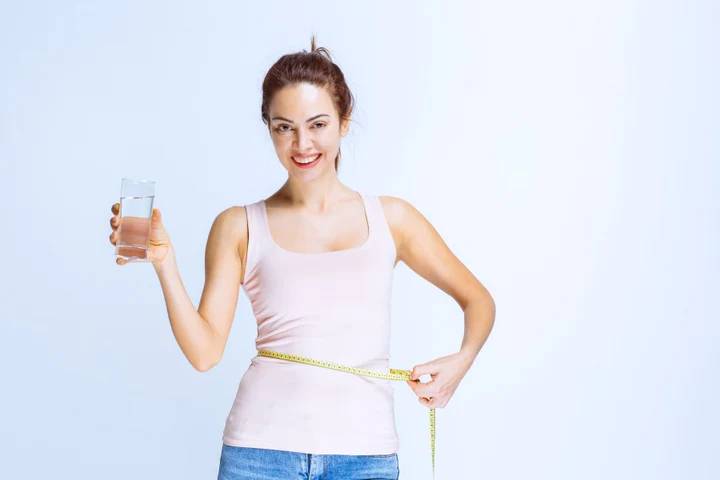Losing weight can be a challenge at any age, but when you’re in your 30s, it can feel like an uphill battle. With the demands of career and family taking center stage, finding the time and energy to focus on weight loss can seem nearly impossible. But fear not, because, with a smarter plan and some strategic organization, you can achieve your weight loss goals even in your thirties. In this guide, I will share some weight loss tips in your 30s.

Contents
How To Lose Weight In Your 30s?
Here are some effective strategies to help you lose weight in your 30s:
- Prioritize Muscle Maintenance and Metabolism: As you hit your 30s, your metabolism starts to slow down. To combat this, focus on building and maintaining your muscle mass. This can be done through regular strength training exercises. By increasing muscle mass, you can boost your metabolism and burn more calories throughout the day.
- Eat a Balanced Diet: A healthy, balanced diet is key to weight loss success at any age. Pay attention to portion sizes and opt for nutrient-dense foods. Incorporate plenty of fruits, vegetables, lean proteins, and whole grains into your meals. Avoid excessive consumption of processed foods, sugary snacks, and drinks.
- Stay Active: Regular exercise is crucial for weight loss. Find activities you enjoy and make them a part of your routine. Aim for at least 150 minutes of moderate-intensity aerobic exercise per week. Mix it up with strength training to build muscle and improve your overall fitness.
- Manage Stress: Stress can disrupt your weight loss efforts. Take steps to manage stress, such as practicing relaxation techniques, getting enough sleep, and engaging in activities that bring you joy. Prioritizing self-care can make a significant difference in your weight loss journey.
- Stay Consistent: Consistency is key when it comes to losing weight. Be persistent in following your healthy eating plan and exercise routine. Stay motivated by setting achievable goals and tracking your progress. Remember, slow and steady weight loss is more sustainable in the long run.
Weight Gain and Age: What’s Going On?
As you enter your 30s, you may notice that losing weight becomes more challenging than before. But why does this happen? Let’s take a closer look at the factors that contribute to weight gain as you age.

1. Slowing Metabolism
One of the main culprits behind weight gain in your 30s is the natural slowing down of your metabolism. As you age, your body tends to lose muscle tissue, which in turn slows down your metabolic rate. This means that you burn fewer calories at rest and during physical activity. Consequently, it becomes harder to create a calorie deficit and lose weight.
2. Lifestyle Changes
Another factor that often leads to weight gain in your 30s is the way your life changes. Starting a family, managing work responsibilities, and other obligations can make it difficult to prioritize your health and fitness. Suddenly, the time you used to dedicate to exercise and healthy meal preparation is filled with other commitments. This can result in a decline in physical activity and poor dietary choices, leading to weight gain.
3. Hormonal Changes
Hormonal shifts also play a role in weight gain as you age. Changes in hormones like estrogen, testosterone, and cortisol can affect your body’s fat distribution and metabolism. These hormonal fluctuations can make it harder to maintain a healthy weight and can also increase cravings and appetite, making it easier to overeat.

4. Decreased Muscle Mass
As you enter your 30s, you may start to experience a gradual decline in muscle mass. This can contribute to weight gain since muscle tissue burns more calories at rest compared to fat tissue. With less muscle mass, your overall calorie-burning potential decreases, making weight loss more challenging.
Frequently Asked Questions
Why am I gaining belly fat in my 30s?
As you enter your 30s, your slimming hormones like DHEA, human growth hormone, and progesterone naturally decline. These hormones keep you lean and prevent belly fat storage. The decline in these hormones can contribute to belly fat gain, especially for women.
Is it possible to be skinny in your 30s?
Yes, it is possible to maintain a healthy weight in your 30s. Although weight loss may be more challenging, mindful and nutritious choices can help. Focus on eating a balanced diet, getting enough sleep, staying hydrated, and exercising regularly to keep your body healthy.
Is it harder to lose weight in your 30s?
Losing weight may be more challenging in your 30s due to factors such as decreased metabolism, changes in muscle mass, and hormonal shifts. However, it’s not impossible. With a healthy lifestyle that includes a balanced diet, regular exercise, and stress management, weight loss is attainable at any age. Don’t let your age discourage you from prioritizing your health.

Hello, I’m Ravindra. Over the years, I’ve immersed myself deeply into the world of fitness and health, transforming both my body and mind. Writing has allowed me to share my journey, insights, and expertise with those just starting out and seasoned fitness enthusiasts alike. Beyond just routines and diets, I believe in inspiring others to adopt a holistic approach to well-being.
